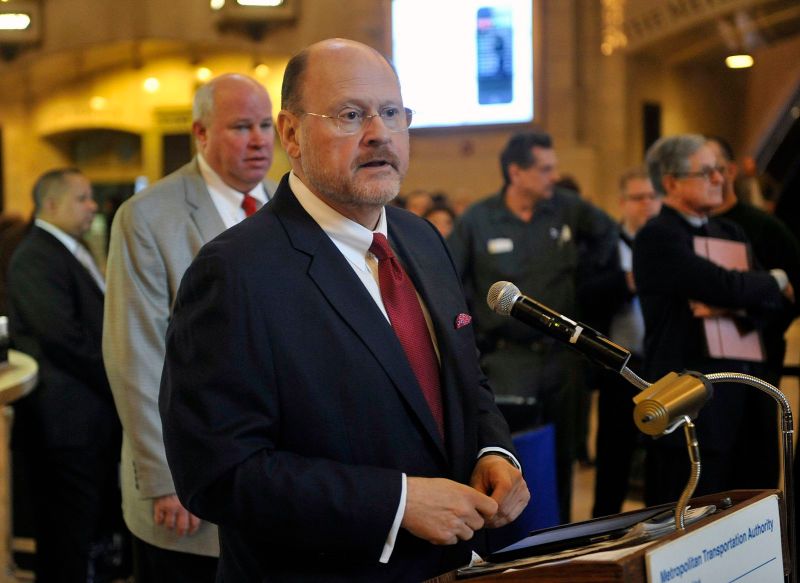Joe Lhota Is Cuomo’s MTA Chief, Again, Sort Of
With subway service deteriorating at an alarming clip, Lhota will take over as a part-time CEO.

Late yesterday, Andrew Cuomo nominated former MTA chief Joe Lhota to resume the role at a time when the agency is grappling with a decline in reliability that has reached crisis proportions. Lhota was hastily confirmed by the State Senate as the 2017 legislative session came to an end last night.
Lhota was the first MTA CEO chosen by Cuomo, at the end of 2011, and he served for about a year before stepping down to run against Bill de Blasio as the Republican nominee for mayor. He’s best known for his management of the MTA’s initial response to Superstorm Sandy (and his willingness to let kittens die on the tracks) and wasn’t in the job long enough to leave a lasting imprint on the agency’s culture or operations.
Lhota doesn’t come from a transit background. He brings experience managing large bureaucracies, having served as a deputy mayor and budget director under Rudy Giuliani in the 1990s, and his first stint at the MTA should give him a firm grounding in how the agency functions.
But Lhota’s second go-round as MTA CEO will also be much different, because he’s not taking it on as a full-time job. He’s going to keep working as a VP at NYU Langone while drawing a $1 salary at the MTA. Day-to-day management of the agency will fall to the executive director. The position is currently occupied on an interim basis by Ronnie Hakim, who remains in the running for the full-time job.
More than Lhota’s credentials, the big question right now is whether a part-time CEO is what the MTA needs. How responsive will the agency be to urgent problems under this arrangement? Where does the CEO’s role end and the executive director’s begin? Which decisions will the executive director be empowered to make, exactly?
Severe train delays are a white hot fire that needs to be stamped out as quickly as possible. Then there’s the mountain of other issues in urgent need of attention: slow buses, high costs, and, in general, too much inertia when rapid adaptation is called for.
It’s encouraging to hear Lhota voice support for aggressive measures to accelerate system repairs, like overnight shutdowns of subway lines so work can get done faster. But now is a strange time to test out a split CEO/executive director management structure on the MTA.





